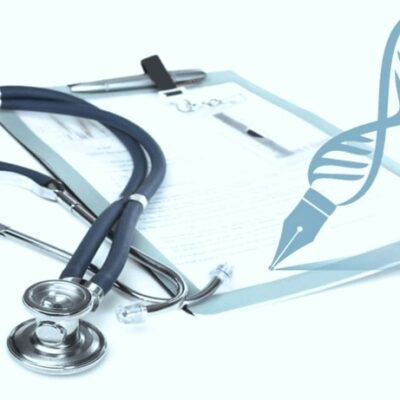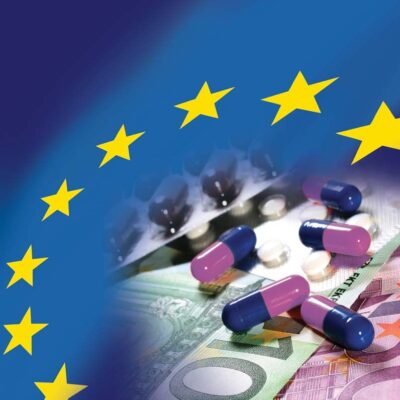Description
The Advanced Diploma in Pharmacovigilance & Regulatory Affairs (ADPV-RA) is an e-learning program designed to provide students a complete understanding of Pharmacovigilance processes, regulations and documentation as well as the pharmaceutical regulatory affairs landscape. It equips you to start a career in Drug Safety or as a Regulatory Affairs specialist. The course is delivered through our learning portal and is aligned to the requirements of the industry.
The Advanced Diploma in Pharmacovigilance & Regulatory Affairs course is aligned to the requirements of the industry. It includes hands-on training modules on Oracle Argus Safety for Pharmacovigilance which is an enterprise application used in pharmacovigilance by most Fortune 500 pharmaceutical companies and contract research organizations.
The course comprises 26 modules, 116 chapters, 113 Quizzes and comprehensively covers all aspects of pharmacovigilance and regulatory affairs thus making you eligible for both roles in the industry. At the end of this you can choose to explore a career in pharmacovigilance, drug safety data management and regulatory affairs. This enables you to be develop multiple skills and be eligible for a wider set of opportunities.
On completing your enrolment for the program you will instantly get access to our online learning portal and the relevant software.
This course includes access to latest version of Oracle Argus Safety – version 8.2.3.1 software for hands on practical experience.
Curriculum
Course Stats – 26 Modules, 116 Chapters, 113 Quizzes
Module 1 – General Introduction
- Pharmaceutical & CR – Industry Overview
- Introduction to Clinical Research
- Stakeholders and Roles in Clinical Research
- History and Milestones in Clinical Research
- Principles of Good Clinical Practice
- Technologies in Clinical Trial Management
- Overview of Clinical Research Regulatory Bodies
Module 2 – Epedemiology and Evidence Based Medicine (EBM)
- Epidemiology 1 – Introduction
- Epidemiology 2 – Concept of Causation
- Epidemiology 3 – Epedemiological Study Designs
- Epidemiology 4 – Statistics
- Evidence Based Medicine
Module 3 – Principles of Pharmacovigilance
- General Overview of Pharmacovigilance
- History and aim of Pharmacovigilance
- Drug dependence
- Vaccine Vigilance
- Principles of Signal Detection in Pharmacovigilance
- Communication in Pharmacovigilance
- Post-Marketing Surveillance
Module 4 – Pharmacovigilance and Selected System Organ Classes
- Dermatological ADRs
- Gastrointestinal ADRs
- Haematological ADRs
- Renal ADRs
- Ocular Side Effects of Prescription Medications
- Drug Safety in Pregnancy
- Hepatic Drug Reactions
- Anaesthetic Adverse Drug Reactions
- Pharmacovigilance in Pediatrics
- The Cardiovascular Spectrum of Adverse Drug Reactions
- Drugs and the Elderly
Module 5 – Pharmacovigilance Systems
- Audits and Inspections in Pharmacovigilance
- Pharmacovigilance Department
- Qualified Person for Pharmacovigilance
- Standard Operating Procedures in Pharmacovigilance
- Literature Review
- MedDRA
- Eudravigilance
- Assessment of Compliance
- Mergers and Acquisitions
- Softwares used in Pharmacovigilance
Module 6 – Global Pharmacovigilance and Safety Standards
- WHO & Safety Reporting
- CIOMS Groups & Functions
- Good Pharmacovigilance Practice
Module 7 – Pharmacovigilance Regulations and Guidelines
- Safety Reporting
- Individual case safety reports
- Periodic safety update reports
- Indian Regulations with specific reference to Schedule Y
- Regulatory Pharmacovigilance in EU
Module 8 – Pharmacoepedemiology
- Introduction to Pharmacoepidemiology
- Molecular Genetic Pharmacoepidemiology
- Analysis of Pharmacoepidemiological Data
- Studies of Drug Use
- Case Control Studies
- Cohort Studies
- Data Sources
- Measures of Frequency & Risk
- Advanced Issues in Pharmacoepidemiology
- Errors in Pharmacoepidemiology
Module 9 – Oracle Argus Safety Essentials
- Overview and Navigation
- Overview of Argus Menus
- Case Form Features
- Drug and Event Coding
- Case Entry and Processing
- Advanced Conditions
- Reporting and Submissions
Module 10 – Introduction to the Judicial System in India
- Introduction to Medical Ethics, Medical Malpractice
- Overview of Judicial System in India
- Legitimacy and Paternity
- Privileged Communication and Professional Secrets
Module 11 – Drugs and Cosmetic Act and Rules
- Introduction, Aims and Objectives, Definitions
- Schedules to Drug Rules
- Import, Manufacture and Sale of Drugs
- Labeling and Packaging of Drugs
Module 12 – Schedule Y
- Introduction, Amendments to Schedule Y
- Clinical Trials
- Studies in Special Population, Post Marketing Surveillance and Special Studies
- Appendices
Module 13 – Indian Regulations Governing Clinical Trials
- Regulatory Authorities in India
- Guidelines and important provisions
- Indian Regulatory Approval Process and approval timelines
Module 14 – Regulatory Regime in US
- Responsibilities of US FDA
- FDA Centers
- Code of Federal Regulations
- FDA guidelines for industry
Module 15 – European Medicines Agency (EMEA)
- Introduction, Roles and Responsibilities of EMEA
- Committees of EMEA
- EU Clinical Directives
- EUDRA CT
Module 16 – Regulations in Japan
- Organization and Function of MHLW (JAPAN)
- Pharmaceutical Laws and Regulations in Japan
- Drug Development in Japan
Module 17 – In-Vitro and In-Vivo Pre-clinical studies
- ICH Safety Guidelines related to Carcinogenicity, Genotoxicity, Reprotoxicity
- ICH safety guidelines related to pharmacology and immunotoxicology studies
Module 18 – Efficacy Topics related to Clinical Studies
- Clinical Safety
- Dose Response Studies
- Clinical Evaluation
Module 19 – Common Technical Document (CTD)
- General principles of CTD
- Modules with Diagrammatic representation
- eCTD
Module 20 – IND and NDA Requirements
- IND and NDA applications in U.S
- IND and NDA Applications in India
Module 21 – CMC Information
- CMC for Phase I
- CMC for Phase II and III
Module 22 – Overview of GHTF
- Organization
- Study Groups and Documents
Module 23 – Regulatory Processes for Medical Devices and Veterinary Products
- U.S Scenario
- Indian Scenario
Module 24 – Biosimilars EMEA Guidance and Regulations
- Guidelines and Applications of Biosimilars
- Specific Guidelines
Module 25 – Biopharmaceutical Indian Regulations and Guidelines
- Regulatory Bodies
- Guidelines for Pre-Clinical and Clinical studies
Module 26 – Regulatory Strategic Planning, Interfacing and Corporate Communications
- Regulatory Strategic Planning
- Corporate Communications
Course Completion
- Final Assessment
- Course Certification
Certification
At the end of the course, students will be awarded a certificate of completion.
Duration
The duration of this program is 6 months.
You will have access to the course, and Argus Safety software for the duration of the program.





Reviews
There are no reviews yet.